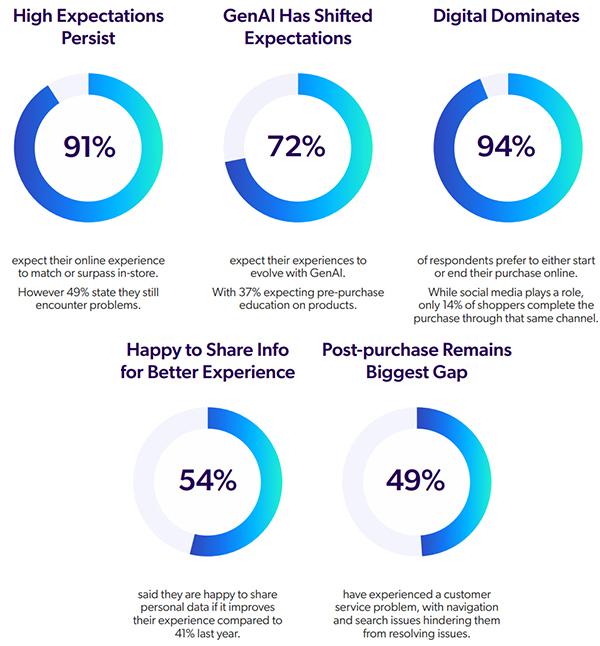
Apple is set to make major announcements next week at its Worldwide
Developers Conference related to generative artificial intelligence (GAI) as research starts to show the influence the technology has on everyday decisions.
The company's new AI system,
Apple Intelligence, is set to debut at WWDC in new versions of software and services for iPhone, iPad, and Mac operating systems.
On the list of announcements are an OpenAI partnership to
power a ChatGPT chatbot, along with new software for the Vision Pro headset, Apple Watch and TV platforms, Bloomberg reported, citing people in the know.
Similar to Google and
Microsoft, Apple’s AI approach means integrating the technology into as many of its apps as possible to get the hundreds of thousands of its current customers to bond with the new
technology.
advertisement
advertisement
Apple plans to integrate GAI into Maps, Music, Notes, as well as features like news summaries to influence experiences. Technologists expect GAI to improve all
forms of experiences, especially news services and shopping.
How much are decisions now influenced by GAI? Coveo, a GAI search platform to experiences, this week released its
fourth annual Commerce Industry Report based on a survey of 4,000 shoppers, across U.S. and UK. The report conducted in partnership with Arlington Research examines shopper
preferences, expectations, and frustrations.
“We didn’t ask this question as part of the survey, but we can say we’ve seen a more than anticipated amount of interest in the
answers as part of product discovery,” said Roman Tiry, director of business values at Coveo. “We believe this will continue as part of the evolution of GAI in the shopper
experience.”
Tiry said GenAI can adequately answer questions based on rich content, but the key will be to bring it into the product discovery experience while grounding into
customer-specific context.
Findings from Coveo’s data shows GAI has changed shopper expectations, particularly pre-purchase decision-making, with 72% of the survey
participants expecting their online shopping experiences to evolve in some way. Thirty-seven percent expect pre-purchase education on products and attributes, and 31% expect a virtual
assistant to help guide them on product selection.
While social media can pique consumer interest, retail websites are the means for conversions. About 39% of the survey
participants said they often or always come across products that catch their interest when browsing social media platforms, up from 55% for Gen Z. Only 14% of shoppers said they completed their
purchase through that same channel.
Some 44% said finding what they are looking for in just a few clicks would have the strongest impact on their perception of a
brand. About 18% said their perception of a brand would be most positively impacted by ease of finding supporting content such as manuals and
instructions.
Privacy concerns around data and content use outlined in Terms of Use have become heightened. Some 54% said they will share information about themselves if it
improves their experience; 65% said they will do so for brands they trust, and/or if they get better deals and offers as a result, compared to 41% and 48%, for the same question
in Coveo’s 2023 report.
The data also shows an increase in the figure relaying shopper concern of how their data is used by online retailers — rising from 64% in
2023 to 71% in 2024.
Post-purchase experience remains a big challenge, with 68% having experienced an issue with either customer service, checkout,
or post-transaction experiences when interacting with a business, which included navigation and search issues that prevented them from resolving problems
or their questions.
Some 71% of millennials and 75% of Gen Z said they were more likely to cite either purchase, customer
service or post-transaction issues.